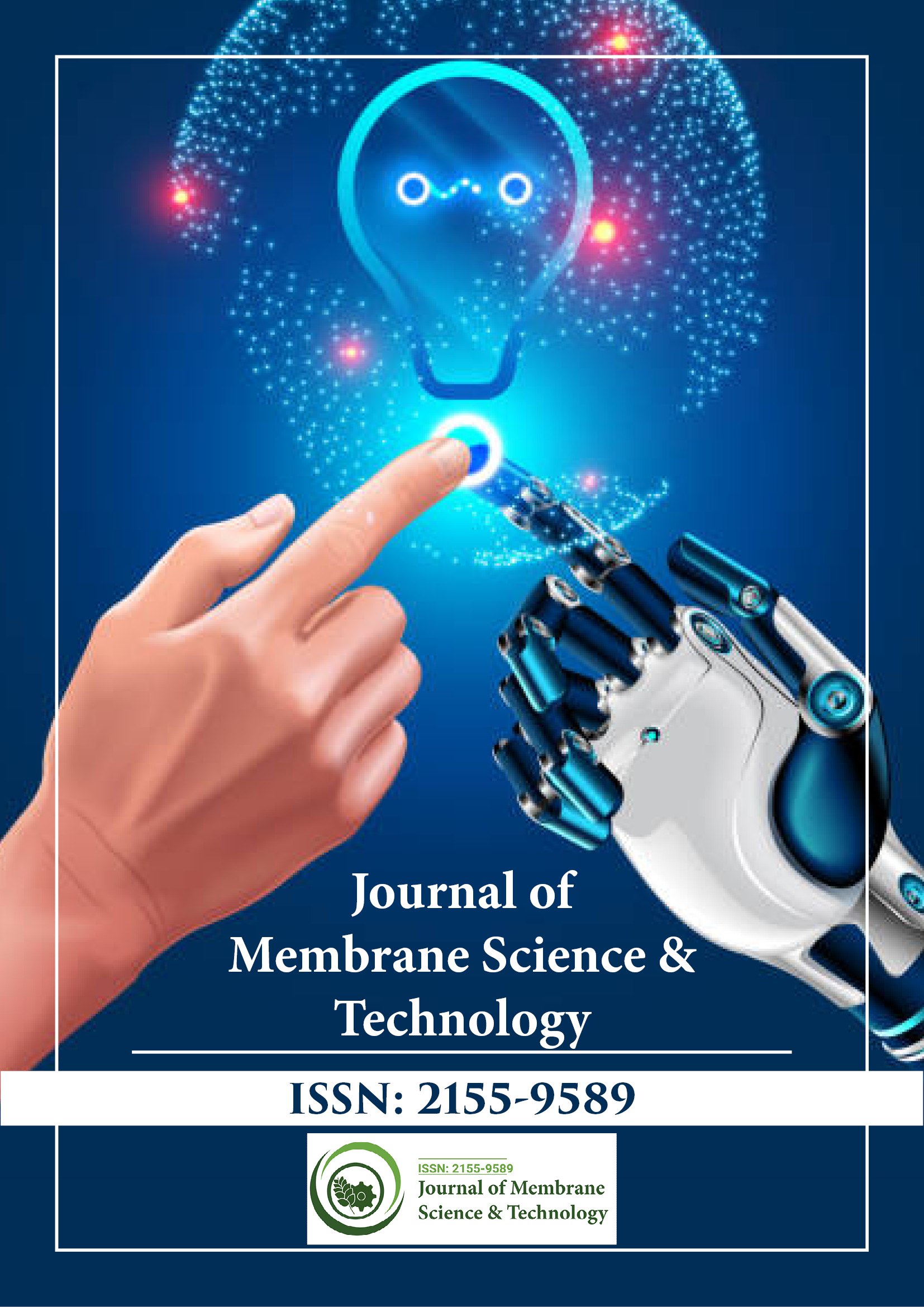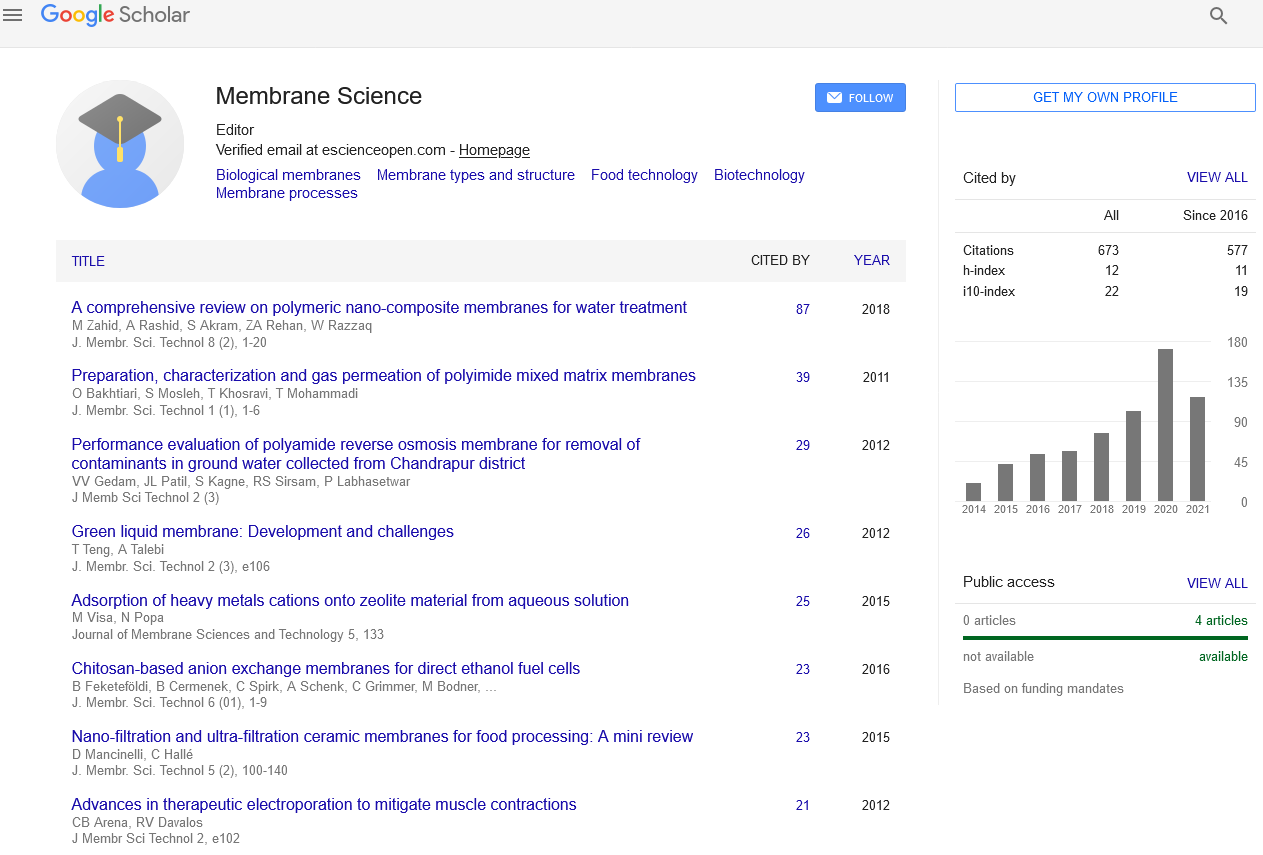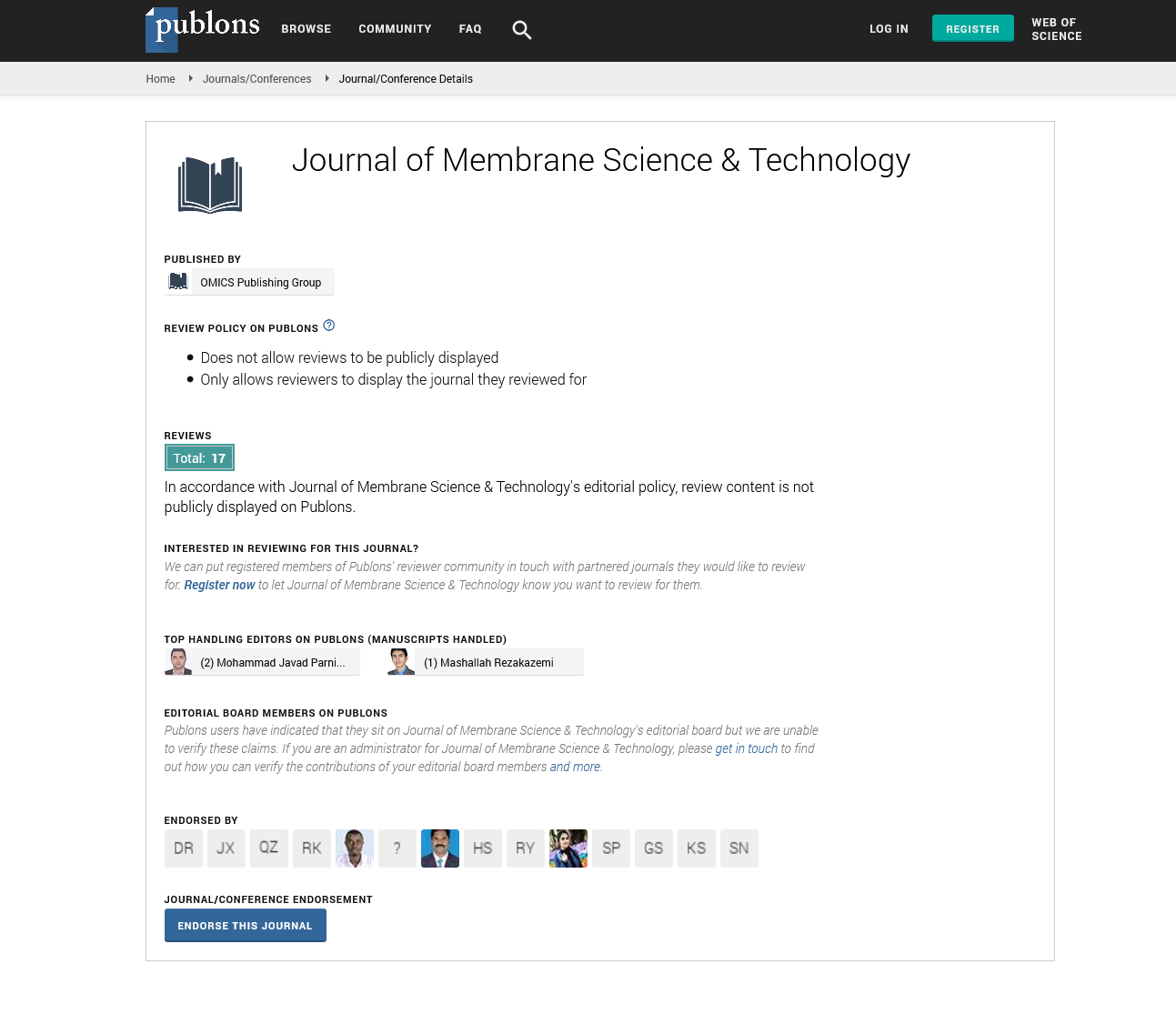Indexed In
- Open J Gate
- Genamics JournalSeek
- Ulrich's Periodicals Directory
- RefSeek
- Directory of Research Journal Indexing (DRJI)
- Hamdard University
- EBSCO A-Z
- OCLC- WorldCat
- Proquest Summons
- Scholarsteer
- Publons
- Geneva Foundation for Medical Education and Research
- Euro Pub
- Google Scholar
Useful Links
Share This Page
Journal Flyer

Open Access Journals
- Agri and Aquaculture
- Biochemistry
- Bioinformatics & Systems Biology
- Business & Management
- Chemistry
- Clinical Sciences
- Engineering
- Food & Nutrition
- General Science
- Genetics & Molecular Biology
- Immunology & Microbiology
- Medical Sciences
- Neuroscience & Psychology
- Nursing & Health Care
- Pharmaceutical Sciences
Abstract
Development of High Water Selective Sodium Alginate-Silica Hybrid Membranes via Sol-gel Technique for Pervaporation Dehydration of Ethanol
Shang Han, Shasha Na, Weixing Li and Weihong Xing
In order to improve the performance of sodium alginate (SA) membrane for dehydration of ethanol, a new method for preparing SA-silica membranes using sol-gel was proposed. The hybrid pervaporation membranes were prepared by hydrolysis and condensation of tetraethyl orthosilicate (TEOS) within SA aqueous solution. The obtained membranes were characterized by scanning electron microscope (SEM), energy-dispersive X-ray spectroscopy (EDX), Fourier Transform Infrared Spectroscopy (FTIR), X-ray diffraction (XRD), Atomic Force Microscope (AFM), thermogravimetry (TG) and differential scanning calorimetry (DSC). Then the membranes were tested by pervaporation dehydration of ethanol. FTIR indicated that -Si-O-C bonds were obtained. XRD showed the SiO2 particles were generated in the SA matrix. The thermal stability of hybrid membranes was enhanced after incorporating TEOS into SA from the DSC results. The tensile strength of SA-40 membrane was improved after incorporating TEOS into SA. The effect of mass ratio of TEOS to SA on the separation performance was investigated. The permeate flux was improved with increasing mass ratio of TEOS to SA. And the result showed that the permeate flux reached 274 g-m-2.h-1 with a high separation factor 17990 when the amount of water in feed was 10 wt% at 50�C. The Arrhenius apparent activation energy for permeation has been estimated from the temperature dependence of permeation values. The activation energy for permeation was 15.1 kJ/mol.


